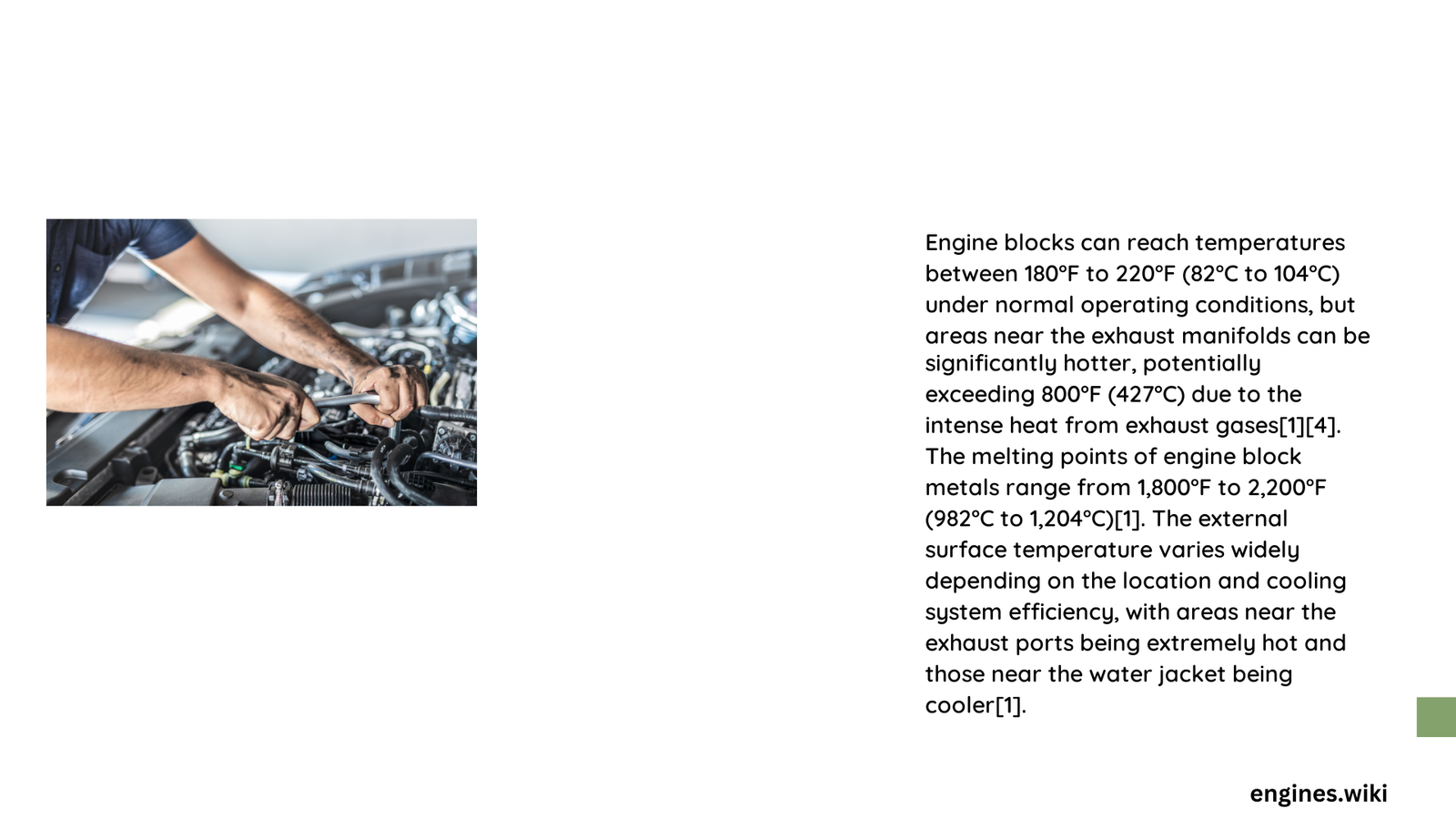Modern vehicle engines operate within complex thermal environments where temperature management is crucial for performance and longevity. Engine blocks can reach remarkable temperatures, typically ranging from 176°F to 293°F, depending on vehicle type, engine design, and operational conditions. Understanding these thermal characteristics helps prevent potential mechanical failures and ensures optimal engine performance.
What Determines Engine Block Temperature?
Factors Influencing Block Temperature
- Engine Material Composition
- Cast Iron: Higher temperature tolerance
- Aluminum: Lower temperature threshold
- Vehicle Type
- Standard Passenger Cars
- High-Performance Vehicles
- Racing Engines
Temperature Range Breakdown
| Engine Type | Typical Temperature Range | Maximum Tolerance |
|---|---|---|
| Standard Passenger Car | 176°F – 248°F | 260°F |
| Performance Vehicle | 220°F – 280°F | 300°F |
| Racing Engine | 250°F – 293°F | 320°F |
How Do Different Materials React to Heat?

Cast Iron Engine Blocks
Cast iron engine blocks demonstrate remarkable heat resistance, typically maintaining structural integrity between 180°F to 220°F. These blocks can withstand higher temperatures compared to aluminum counterparts, making them more robust in extreme conditions.
Aluminum Engine Blocks
Aluminum blocks are more thermally sensitive, with recommended maximum temperatures around 220°F. Beyond this point, structural deformation and potential mechanical failures become significant risks.
What Happens When Engine Blocks Overheat?
Exceeding recommended temperature thresholds can trigger multiple critical issues:
- Mechanical Stress
- Cylinder head warping
- Gasket deterioration
-
Potential engine seizure
-
Performance Degradation
- Reduced fuel efficiency
- Increased emissions
- Power output reduction
Monitoring Techniques for Engine Block Temperature
Advanced Temperature Tracking Methods
- Integrated Dashboard Gauges
- Infrared Pyrometers
- Thermocouple Sensors
- Engine Control Unit (ECU) Monitoring
Prevention and Maintenance Strategies
Cooling System Best Practices
- Regular coolant level checks
- Consistent thermostat maintenance
- Periodic radiator inspections
- Professional cooling system evaluations
Technical Insights for Enthusiasts
Thermal Expansion Considerations
Engine blocks experience significant thermal expansion during operation. Precise engineering ensures materials can accommodate these temperature-induced dimensional changes without compromising structural integrity.
Thermal Conductivity Variations
Different engine block materials exhibit unique thermal conductivity characteristics, directly influencing heat dissipation and overall engine performance.
Conclusion
Understanding engine block temperatures requires comprehensive knowledge of materials, design, and operational dynamics. Proper maintenance, regular monitoring, and awareness of thermal limitations are essential for preserving engine health and performance.
